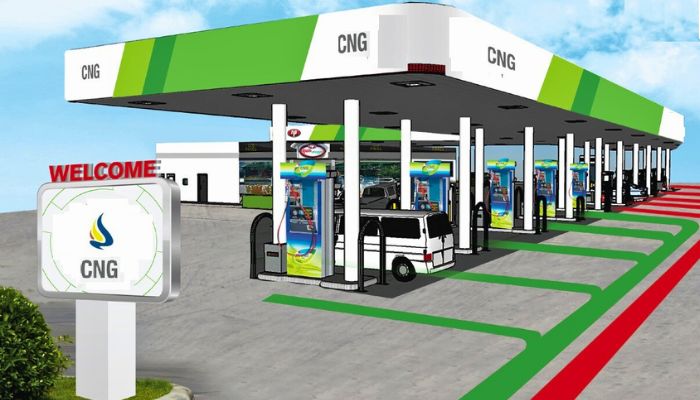
Nigerian Government Introduces Payment Plan for CNG Conversion
The Nigerian government has rolled out a new payment plan to make it easier for vehicle owners to convert their petrol-powered cars to compressed natural gas (CNG), a move aimed at reducing reliance on petrol and promoting cleaner energy alternatives. This initiative, announced by the National Orientation Agency (NOA), offers vehicle owners the opportunity to convert their cars now and pay later through “affordable” monthly instalments at “competitive rates.”
This plan is part of the government’s broader strategy to transition the country towards more environmentally friendly transportation systems and is backed by the Presidential Compressed Natural Gas Initiative (PCNGi). The initiative will see the distribution of 2,000 CNG-powered tricycles to youths in Nigeria’s transportation sector, starting on October 1, 2024.
Expanding CNG Infrastructure
The government is making significant strides to bolster the country’s CNG sector. The PCNGi recently held a strategic meeting with Xinge, a China-based tricycle manufacturing company, to discuss potential partnerships and investment through the CNG Industrial Park. This park aims to facilitate the development of the CNG sector, and support the conversion of vehicles from petrol to natural gas.
The partnership could provide a significant boost to the CNG sector by attracting international investments and expertise. The manufacturing and distribution of CNG-powered tricycles will not only promote cleaner transportation but also provide job opportunities for young Nigerians in the sector.
Payment Plan and Benefits of CNG Conversion

The NOA emphasized that the new payment options make it easier for Nigerians to switch from petrol to CNG without the burden of upfront costs. The plan allows for:
- Flexible payment plans: Convert now and pay later with instalments tailored to users’ budgets.
- Quick online application: Users can apply for conversion through a seamless online process that provides fast approval and support at every stage.
According to the NOA, the benefits of CNG include reduced environmental impact, increased safety, and reliability. The agency assures users that CNG is a proven technology with a strong track record of performance and dependability, urging vehicle owners to make the switch through the new installment payment plan.
Presidential CNG Initiative (PCNGi) App: Streamlining the Conversion Process
To simplify the process of converting petrol vehicles to CNG, the government introduced a dedicated app in August 2024. The app, available on Google Play and the Apple Store, allows users to:
- Find nearby CNG conversion centres.
- Book appointments for conversion services.
- Access exclusive discounts and track updates on fuel prices.
This app is a vital tool for those looking to convert their vehicles, providing ease of access and updated information throughout the process.
CNG in Nigerian Public Transport: Key Agreements
In addition to private vehicle conversions, the government has struck important agreements to push for CNG adoption in public transportation. In a Memorandum of Understanding (MOU) signed between PCNGi and the National Union of Road Transport Workers (NURTW), vehicles on the Abuja-Itakpe Station-Adavi route will be converted to run on CNG. This agreement demonstrates the government’s commitment to scaling up CNG use in the country’s public transport system.
The government has also entered into an agreement with the Nigeria Police Trust Fund (NPTF) to roll out the Nigerian Police CNG Conversion Programme, which will oversee the establishment of CNG conversion centres for police vehicles. This effort highlights the government’s strategy to integrate CNG use across essential services and state agencies.
SEE ALSO: The Nigerian Government Chooses CNG Vehicles Over EVs. This Is Why
E-Hailing Drivers Express Concerns Over CNG Conversion Benefits
While many have welcomed the government’s CNG initiatives, some stakeholders have expressed dissatisfaction. The Amalgamated Union of App-based Transporters of Nigeria (AUATON), which represents e-hailing drivers, has voiced concerns over the CNG conversion benefits. According to AUATON, e-hailing drivers only receive a 50% discount on CNG conversion costs, leaving them to cover the remaining expenses themselves, including installation fees. The union has called for more equitable benefits for e-hailing drivers, highlighting a need for more inclusive policies to ensure widespread adoption.
Conclusion
The Nigerian government’s Compressed Natural Gas Initiative (PCNGi) is a bold step toward reducing the nation’s dependency on petrol and shifting to a cleaner, more sustainable transportation system. The introduction of flexible payment plans, partnerships with international manufacturers, and the roll-out of 2,000 CNG-powered tricycles marks the beginning of a nationwide shift to natural gas-powered vehicles.
However, as the initiative gains momentum, it is clear that the government will need to address concerns raised by certain sectors, like e-hailing drivers, to ensure that the benefits of the CNG transition are felt across all levels of society. The ongoing expansion of CNG infrastructure, supported by government-backed apps and strategic agreements, promises to make this transition smoother for everyone involved.


